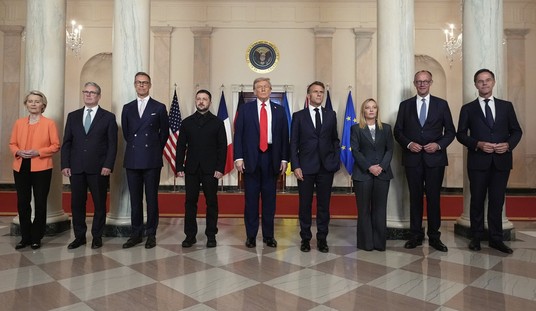On Tuesday, Liberia’s Ambassador to the United States, Jeremiah Sulunteh, confirmed in an interview with the BBC that his country is “close to collapse” as a result of this unprecedented Ebola outbreak.
Experts fear that the West African nation, which suffered 14 years of civil war in which a quarter of a million perished, is on the brink of a disaster from which it may never recover. Some believe that the country which toppled the dictator Charles Taylor just a few short years ago could again descend into chaos and violence.
“We have a lot to worry about. If we have thousands or tens of thousands more deaths, that’s going to have a very destabilizing effect,” said the International Medical Corps’s director of anti-Ebola operations in Liberia, Sean Casey.
“The country’s night-time streets – deserted between 9pm and 6am due to a nationwide curfew – hint at the vacuum in a country where daily norms are swiftly vanishing,” The Huffington Post U.K.’s Louise Ridley reported.
The weak Liberian health system is about to buckle. There aren’t enough doctors and nurses or even clinics to treat the spiraling number of cases.
…
Schools have been closed, as have university classes, and public gatherings are restricted. Some towns were temporarily quarantined, and movement is restricted into others.The disease has dragged Liberia into a recession. Projected growth for this year has been slashed from 5.9% to 2.5%, and negative growth looks likely in 2015 if the situation continues.
Thousands of non-essential government staff and civil servants have been sent home on paid leave and are “idle and helpless” according to Liberia’s ministry of commerce and industry. Some small businesses are continuing to run for the time being, but the country’s central engine is effectively stalled.
On Thursday, still more progress made in the wake of the Taylor’s ouster was lost when the country announced that it would suspend national elections. Liberian President Ellen Johnson-Sirleaf said that the measure was necessary as poll workers could not be deployed across the country, and the electoral process which would prompt Liberians to congregate and come into close contact threatened to spread the virus further.
In the wake of the first Ebola death on U.S. soil, Americans are becoming increasingly worried that he epidemic will spread to Western nations. A new NBC News survey found that 51 percent of all Americans fear that an Ebola outbreak in the United States will occur despite the fact that 72 percent of all respondents understand that Ebola can only be spread via direct contact with the body fluids of an infected individual.
“By an almost 2-1 margin, those surveyed disapproved of sending U.S. troops overseas to help contain the outbreak,” NBC News reported. Another 58 percent support banning all flights between the U.S. and the Ebola-affected countries of West Africa.








Join the conversation as a VIP Member